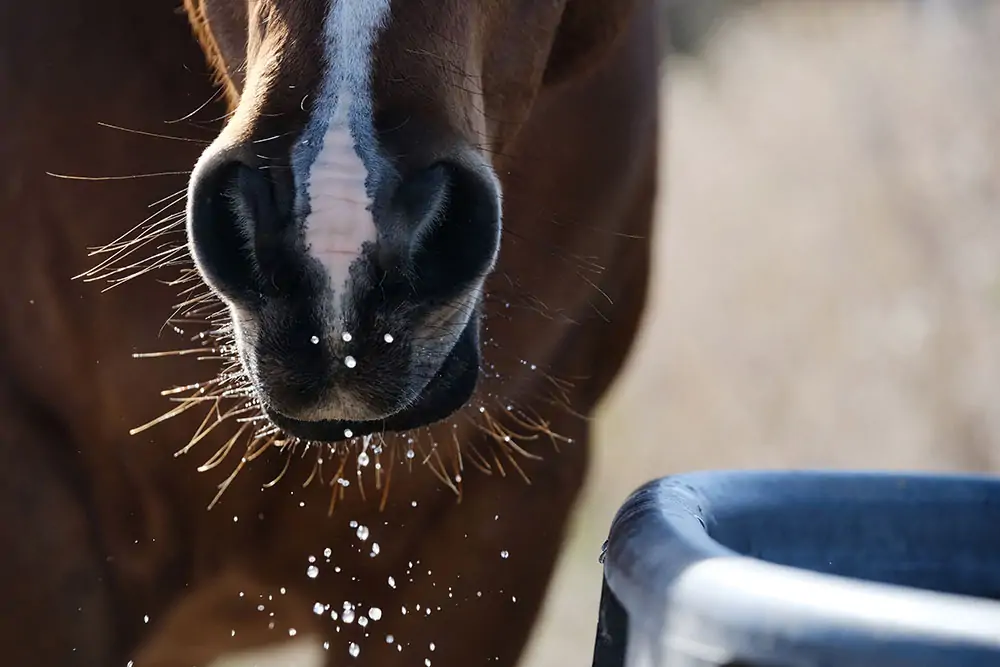As horse owners and caretakers, we often focus on nutrition, exercise, and general well-being, but one crucial aspect that sometimes gets overlooked is hydration.
Just like humans, horses require a steady intake of water to maintain their health, especially during hot weather. In this blog post, we’ll explore why hydration is vital for your horse and how to ensure they stay properly hydrated, even on the hottest days.
Why Hydration Matters
Horses are large animals with high metabolic rates, which means they need plenty of water to function properly. Water plays several essential roles in a horse’s body, including:
- Regulating Body Temperature: Horses can lose significant amounts of water through sweating, especially during exercise or in high temperatures. Proper hydration helps regulate their body temperature and prevents overheating.
- Supporting Digestion: Water is crucial for the digestive process. It aids in the breakdown of food and the absorption of nutrients. A well-hydrated horse is less likely to experience colic and other digestive issues.
- Maintaining Circulation: Blood is mostly composed of water. Adequate hydration helps maintain proper blood volume and circulation, ensuring that nutrients and oxygen are delivered effectively throughout the body.
- Preventing Kidney Problems: Sufficient water intake supports kidney function, helping to flush out toxins and prevent urinary issues.
Signs of Dehydration
Understanding the signs of dehydration is key to keeping your horse healthy. Some common symptoms include:
- Dry Gums: Healthy horses have moist, pink gums. If the gums feel dry or sticky, it could indicate dehydration.
- Sunken Eyes: A dehydrated horse may have dull or sunken eyes, which can be a clear sign of insufficient water intake.
- Lethargy: If your horse seems unusually tired or sluggish, dehydration could be a factor.
- Reduced Urination: A decrease in the frequency of urination can also indicate that your horse is not drinking enough water.
If you notice any of these signs, it’s important to take action immediately.
Tips for Keeping Your Horse Hydrated
1. Provide Fresh, Clean Water
Ensure that your horse always has access to fresh and clean water. Horses can be picky about water quality, so make it a habit to check and refill water troughs regularly. During hot weather, consider adding electrolytes to their water to encourage drinking.
2. Monitor Water Intake
Keep an eye on how much water your horse is consuming. On average, a horse should drink between 5 to 10 gallons of water daily, but this can vary based on factors like size, activity level, and climate. If you notice a drop in intake, investigate potential issues.
3. Offer Water Before and After Workouts
Encourage your horse to drink before and after exercise. Offering water after a workout can help replace fluids lost through sweat and maintain hydration levels. A good rule of thumb is to let your horse drink as much as they want after exercise, but don’t force them.
4. Use a Salt Block or Electrolytes
Providing a salt block can encourage your horse to drink more water. Horses instinctively drink more when they have a source of salt available. Additionally, using electrolytes can help replenish lost salts and minerals, especially after strenuous exercise or in hot weather.
5. Keep the Water Cool
In hot weather, warm water can be unappealing. Try to keep your horse’s water cool by adding ice or using insulated water containers. Horses are more likely to drink water that is at a comfortable temperature.
6. Consider Feeding Practices
Wet feed can help with hydration. Consider soaking hay or providing pelleted feeds that have a high moisture content. This can supplement your horse’s water intake, especially if they are reluctant to drink.
Hydration is a fundamental aspect of your horse’s health that requires attention, particularly during hot weather. By ensuring your horse has access to clean, fresh water and monitoring their intake, you can help prevent dehydration and support their overall well-being. Remember, a hydrated horse is a happy and healthy horse! So, stay vigilant, especially on those hot summer days, and keep your equine friend feeling their best.




